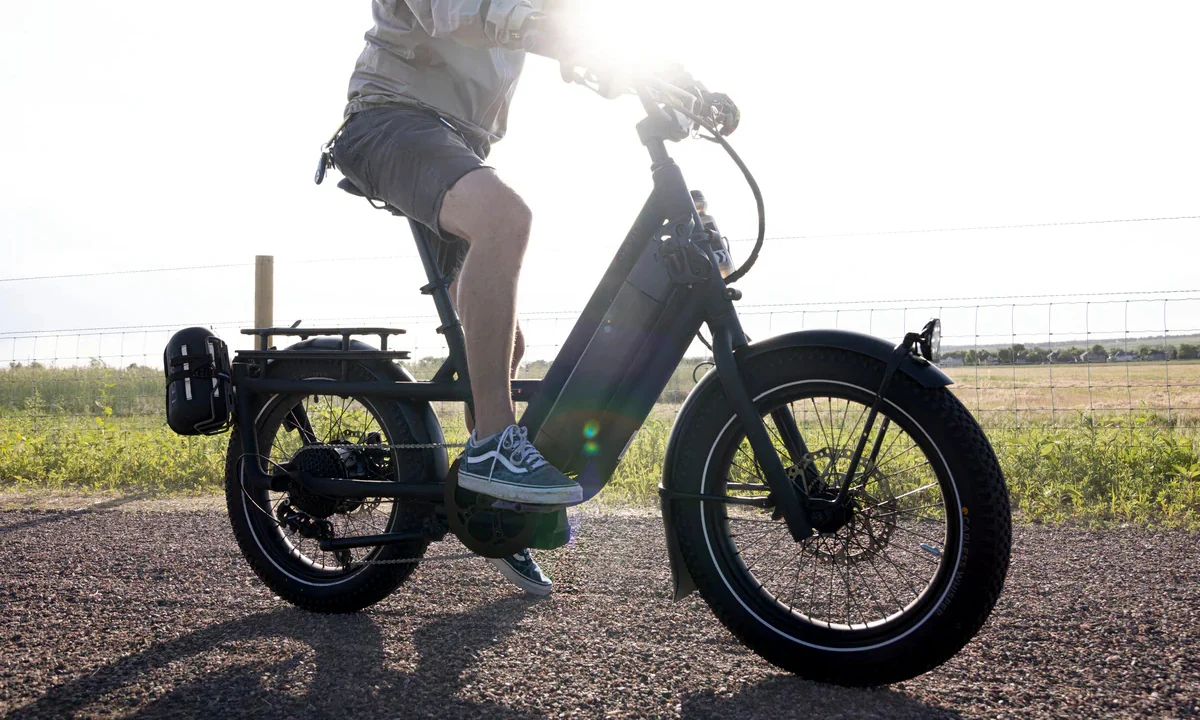Used bicycles offer a more sustainable, cost-effective, and accessible way to get a “new” bike for both novices and seasoned cyclists. However, the journey to finding a reliable, quality used bike can be fraught with uncertainty, especially for those new to the scene.
There are now several used bike marketplaces — both online and offline — that make purchasing and selling used bikes easier than ever. Each platform has its strengths and weaknesses and will require varying levels of patience, trust, and personal interaction. We’ll provide an overview of the most popular used bike marketplaces right now, and their pros and cons.
[button]Shop Used Bikes[/button]
Used Bike Marketplace Overview
The digital age has significantly expanded the horizons for buying and selling used bicycles. Online marketplaces offer a vast array of options, catering to every cyclist's needs, preferences, and budget. Here, we explore some of the most popular online platforms for finding your next used bike, highlighting their pros and cons to help you navigate your options effectively.
[button]How Accurate is Bicycle Blue Book[/button]
[newsletter]
eBay
Overview:
A global marketplace for buying and selling goods, eBay offers an extensive selection of used bicycles, ranging from high-end road bikes to rare vintage finds.
Pros:
- Wide selection covering various types of bicycles and price ranges.
- Buyer protection policies provide security against fraud.
- Auction and buy-it-now options offer flexibility in how you purchase.
Cons:
- Navigating the highly variable selection can be overwhelming for new buyers.
- Shipping costs can be high, especially for larger items like bicycles.
- Risk of misrepresentation by sellers, though mitigated by eBay's policies.
Craigslist
Overview:
A classified advertisements website with a dedicated section for bicycles. Craigslist facilitates local transactions, allowing buyers to inspect bikes in person before purchasing.
Pros:
- No shipping costs, as transactions are local.
- Potential to negotiate prices directly with sellers.
- Immediate availability and the option to inspect before buying.
Cons:
- Higher risk of scams and fraudulent listings.
- Quality and condition of bikes can vary significantly.
- No buyer protection outside of caution and common sense.
Pinkbike
Overview:
A content site catering specifically to the mountain biking community, Pinkbike is renowned for its comprehensive listings of used mountain bikes, as well as some road and gravel bikes, and cycling gear.
Pros:
- A focused marketplace with a passionate user base, ideal for specific cycling disciplines.
- Sellers have visible profiles and histories to help establish a level of trust.
- Secure payment options through Pinkbike's platform.
Cons:
- Primarily focused on mountain biking and may have limited options for other disciplines.
- Geographic coverage can be uneven, with some areas having more listings than others. Not all sellers will ship bikes.
Escape Marketplace
Overview:
The newest marketplace option from the Escape Collective content site catering to the Escape Collective community and its members.
Pros:
- A focused marketplace with a passionate user base, ideal for specific cycling disciplines.
- Members get “Verified” status which improves the trustworthiness of certain listings.
- Free to use, no membership required.
Cons:
- As a young marketplace, there is still a limited selection
- Geographic coverage can be uneven, with some areas having more listings than others. Not all sellers will ship bikes.
- The dev team has not added size or region filtering yet. This currently requires using the search bar.
Facebook Marketplace
Overview:
Leveraging Facebook's vast social network, this platform connects local buyers and sellers, including a wide variety of used bicycles.
Pros:
- Easy to find local deals and arrange in-person inspections.
- The social aspect allows for a quick assessment of the seller's credibility.
- Free to use, with no fees for buying or selling.
Cons:
- Limited buyer protection, relying on user vigilance.
- Quality of listings can be variable.
- May encounter non-responsive sellers or buyers.
The Pro's Closet
Overview:
Specializing in certified pre-owned bicycles, The Pro's Closet offers a curated selection of road, mountain, and gravel bikes that have been inspected and serviced by professionals.
Pros:
- Each bike undergoes a comprehensive inspection and servicing process.
- Offers a competitive trade-in program for your old bike.
- Provides detailed condition reports and high-quality photos for each listing.
Cons:
- Prices can be higher due to the added value of certification and servicing.
- Limited selection compared to broader marketplaces.
- Primarily caters to the higher end of the market.
BikeExchange
Overview:
Acting as a hub for both new and used bicycles, BikeExchange connects buyers with retailers and private sellers, offering a range of bikes and cycling equipment.
Pros:
- Wide selection from both retailers and private sellers.
- Offers new and used bikes, providing options for various budgets.
- User-friendly interface with filters to narrow down search results.
Cons:
- Prices can vary widely, requiring more research to find the best deals.
- Mixed quality of listings, with some being better than others.
- Limited buyer protection, depending on the seller's policies.
Offline Alternatives
While online marketplaces provide convenience and a wide selection of used bicycles, many cyclists prefer the tangible experience of offline shopping. This approach allows for hands-on inspection, immediate gratification, and personal interaction with sellers. The key to success lies in patience, knowledge, and a bit of luck. These avenues not only offer the potential for great finds but also enrich the overall experience of joining the cycling community.
Local Bike Shops (LBS)
Overview:
These are rare, but some local bike shops may offer used bicycles or accept trade-ins. These establishments often refurbish bikes before selling, ensuring they meet safety and performance standards.
Pros:
- Quality assurance: Bikes are inspected, serviced, and often come with a shop warranty.
- Expert advice: Staff can provide valuable guidance on selecting the right bike for your needs.
- Immediate service: Any necessary adjustments or repairs can be made on the spot.
Cons:
- Limited selection: Inventory depends on local trade-ins and may not offer as much variety as online platforms.
- Higher prices: The added value of service and support often reflects in the pricing.
Swap Meets
Overview:
Organized swap meets can be treasure troves for used bicycles, offering everything from vintage finds to recent models at competitive prices. Times and locations for local swap meets (e.g. VeloSwap is/was the big Denver swap meet) can often be discovered through Facebook or community board postings.
Pros:
- Bargain prices: Potential to find great deals, especially if you're skilled at negotiating.
- Unique finds: Ideal for discovering rare or vintage bikes that aren't available elsewhere.
- Instant ownership: You can take your new bike home the same day.
Cons:
- Variable selection: The condition of bikes can greatly vary, and sellers may not always know the bike's history. Swap meets also tend to attract more sellers with components, small parts, and gear than complete bikes.
- No guarantees: There's little to no recourse if you discover issues with the bike after purchase.
- Requires knowledge: It's beneficial to know how to assess a bike's condition and value on the spot.
Cycling Co-ops
Overview:
Local cycling co-ops are often the best place to go to find extremely affordable bikes that have usually been serviced by volunteers or co-op employees. Shopping at co-ops directly supports your local cycling community.
Pros:
- Cycling community: Establish connections within the local cycling community for future advice or rides.
- Low cost: co-ops rely on donations and generally have the least expensive bikes and parts available.
Cons:
- Limited availability: You're restricted to your community's current offerings. Most offerings will be older and
- Novice-oriented: Options for performance-oriented cyclists are generally very limited.
How to Ensure You're Not Buying a Stolen Bike
To mitigate the risk of purchasing a stolen bike, one effective method is to request the bike's serial number from the seller and verify it against databases like BikeIndex. These platforms maintain records of stolen bikes and can help confirm the legitimacy of your potential purchase.
Serial numbers serve as unique identifiers for bicycles, making them an essential tool in theft prevention and recovery. By checking a bike's serial number against databases like BikeIndex, buyers can ascertain whether a bike has been reported stolen. This practice not only helps in avoiding the purchase of stolen goods but also supports a safer and more trustworthy marketplace for cyclists.
[button]Shop Used Bikes[/button]























